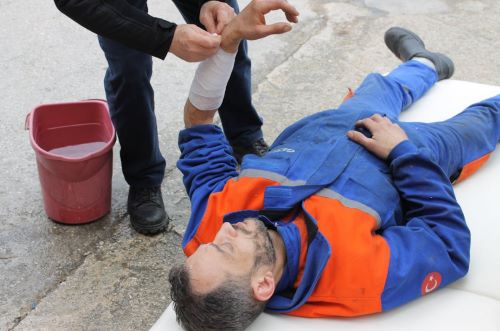

When we talk about workplace injuries, most people picture the immediate physical impact: a fall, a broken limb, a strain, maybe even surgery. What we don’t always talk about is what happens after the ER visit. Because while the injury might be localized to one person, the consequences? Those spread out like ripples in a pond—touching every corner of a household.
A work injury isn’t just about healing bones or strained muscles. It’s about missed paychecks, anxious kids, sleepless spouses, and a family’s daily rhythm thrown off-kilter. And sometimes, it’s also about going up against systems that make recovery harder, not easier.
This is where legal support comes in. Firms like the GLG Personal Injury Lawyers aren’t just representing a client—they’re often advocating for an entire family’s well-being. Because when you’re injured at work, it’s rarely just your body that takes the hit.
The Financial Fallout Hits Fast
When a worker gets hurt, the first thing families often feel is the financial pinch. Even with workers’ comp in play, the reality is that many benefits don’t cover 100% of lost wages—and that shortfall can snowball quickly.
Think of a household where one parent is the primary breadwinner. A single missed paycheck might mean rent is late. Two might mean utilities get cut off. And when savings run out (if there were any to begin with), families often end up relying on credit cards or loans—building up debt while they’re already under pressure.
And that’s just the wages. Medical bills, rehab, travel for appointments, and childcare add layers of unexpected costs. Financial stress is one of the biggest sources of conflict in families—and injuries can bring that stress into sharp focus almost overnight.
The Emotional Whiplash Nobody Prepares For
It’s not just about the money. The emotional toll of a workplace injury can be just as heavy—sometimes heavier.
The injured person often feels a deep loss of identity. If their job was a big part of how they defined themselves, being unable to work can lead to depression, anxiety, or feelings of worthlessness. Add in pain, medication, and the uncertainty of recovery, and it’s a rough mix.
Meanwhile, family members—especially partners—take on more than they bargained for. They might become caregivers overnight. They might have to pick up extra work, handle the bills, or manage the kids solo. Resentment can creep in, even with the best intentions.
And children? They may not understand what’s happening, but they feel it. A parent who used to play catch is now in a brace. A parent who used to help with homework is now asleep from pain meds. The household feels different, and kids pick up on that faster than we think.
When Injuries Shift Household Roles
Workplace injuries often force families to renegotiate roles on the fly. The person who cooked, cleaned, or picked up the kids might now be in bed or at physical therapy. And if there’s a long-term disability, these changes aren’t temporary—they’re permanent.
Sometimes these shifts bring families closer. Other times, they expose cracks that were already there. Either way, the whole structure of the home has to adjust. And doing that while dealing with grief, frustration, and physical limitations? It’s no small feat.
Legal Support Isn’t Just About Compensation
Here’s where having good legal backup matters. When you’re in the thick of injury recovery, filing paperwork, appealing denied benefits, or negotiating a settlement can feel impossible.
A qualified attorney doesn’t just chase money—they build a buffer so families can breathe. They make sure injured workers know their rights, file claims correctly, and—just as importantly—don’t get pushed around by insurers or employers who want to move on quickly.
In a perfect world, compensation would be automatic and fair. In reality, people often have to fight for what they’re owed. Legal teams make that fight winnable.
Where the System Falls Short
Workers’ compensation laws are designed to protect injured employees, but they’re not perfect. In some states, the process is quick and supportive. In others, it’s bogged down with delays, denials, and red tape.
What’s worse? Many injuries—like stress-related conditions or repetitive strain injuries—are harder to “prove.” Employers and insurers may challenge them, even if the damage is very real.
Mental health injuries are especially tricky. An employee suffering from PTSD after a workplace accident might have no visible wounds but still be deeply affected. Yet claims involving psychological harm are often scrutinized more harshly.
Families can get stuck in a painful limbo: not well enough to return to work, but not “injured enough” in the system’s eyes to qualify for full benefits.
When an Injury Becomes a Family’s Legal Education
Many families don’t know anything about their rights until something bad happens. An injury often becomes a crash course in disability law, workers’ comp claims, and legal timelines.
This learning curve is steep. And for families already juggling jobs, kids, and caregiving, navigating legal language and bureaucracy can be exhausting. That’s why early legal consultation is so valuable. It takes some of that cognitive load off the household—and gets better outcomes, too.
Long-Term Effects Most People Don’t See
Even after a worker “recovers,” the aftershocks can linger. Chronic pain, permanent physical limitations, or mental health issues can impact how a person participates in family life.
Imagine a parent who can no longer kneel to tie a toddler’s shoe. Or one who can’t drive anymore, meaning someone else has to do the school runs. These small losses compound over time.
And when injuries prevent someone from returning to their old job—or from working at all—families may need to rethink their entire financial future. That could mean selling a home, delaying college plans, or relying on government support they never thought they’d need.
The Invisible Labor of Caregiving
Partners and spouses often become unpaid caregivers. They drive to appointments, manage meds, help with physical tasks, and keep the household running.
This labor is vital—but often undervalued. It can lead to burnout, lost income (if they have to reduce hours), and mental health struggles of their own. And yet, there are very few support systems in place for these family caregivers, especially when the injury wasn’t “severe” enough to trigger additional services.
Legal settlements rarely factor in the cost of caregiving labor. That’s a gap in justice worth talking about more.
What Employers Could Do Differently
While legal help can step in after the fact, many workplace injuries are preventable. Employers have a duty to provide a safe work environment—and too often, corners are cut in the name of efficiency.
Better safety training, mental health support, and clear reporting systems can reduce injuries in the first place. Paid sick leave and job protections for injured workers can ease the strain when accidents do happen.
But in reality, many employers focus more on compliance than on care. And families pay the price for that indifference.
Why This Isn’t Just a Legal Issue—It’s a Human One
At the end of the day, this isn’t just about liability or compensation. It’s about dignity.
Every person deserves to go to work and come home in one piece. And if that doesn’t happen, they deserve a system that supports not just their recovery—but their family’s survival.
Injuries don’t just affect muscles and bones. They affect mental health, relationships, finances, and futures. And until our systems start recognizing that, too many families will continue to suffer in silence.
Before We Wrap: What Families Can Do Now
If someone in your household has been injured at work, here’s what you can do today:
- Document everything. Keep a journal of symptoms, medical visits, and changes in household responsibilities.
- Get legal advice early. Even if you’re not sure you want to file a claim, know your rights before deadlines pass.
- Apply for support services. You may qualify for temporary financial aid, caregiving relief, or therapy.
- Talk about it. Kids especially benefit when they’re included in age-appropriate conversations about what’s going on.
- Don’t go it alone. Whether through legal help, local nonprofits, or caregiver support groups—build your team.

Final Thoughts
Workplace injuries are rarely just physical. They’re economic, emotional, and often invisible to outsiders. But inside a home, their impact is deeply felt.
So let’s stop thinking of work injuries as isolated incidents. They’re family issues. Community issues. And yes—justice issues. Because when we take care of the whole person, we take care of the people who love them, too.


